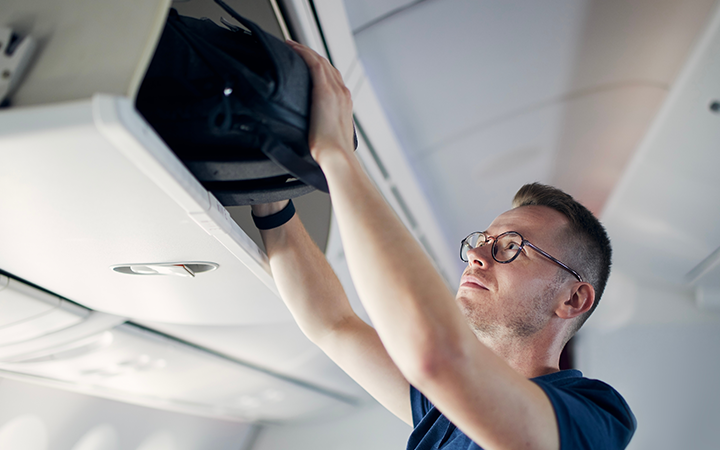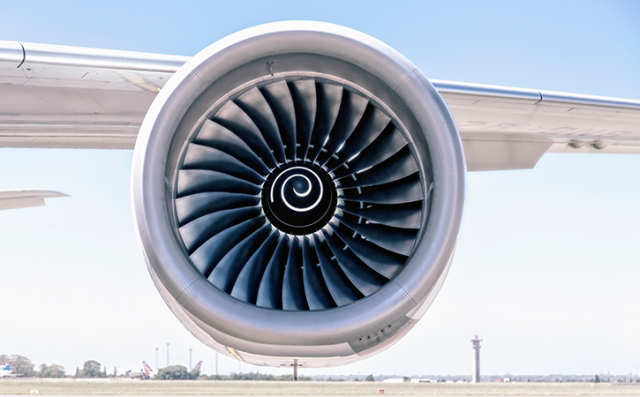
The power of corporate travel benchmarking
Is your corporate travel programme delivering value or just cruising on autopilot?
Forward-thinking travel managers are proactive and don’t sit in a vacuum. They understand the importance of having their ear to the ground internally and externally to stay ahead of change and trends.
Benchmarking is a part of that strategy. It’s an independent review exercise that assesses how your corporate travel programme is performing compared to others. You can benchmark a specific element, such as:
- Air: Are your negotiated rates, cancellation terms, perks, and emissions data holding up against others?
- Hotel: Do your inclusions, location choices, sustainability, and extras still deliver value?
- Booking behaviour: Are your lead times, policy rules, online adoption, and class allowances helping or hurting?
- Sustainability: Are you ahead or falling behind on emissions and reporting, or what about your carbon offset uptake?
Why benchmarking is important
Performance benchmarking is never a stand-alone activity; it should be part of your wider business strategy. If you aren't running benchmarking exercises, you run the risk of your programme not being competitive, or you may make travel decisions that aren't backed by relevant data.
If you can't measure how your programme is faring, your prices might be too high. Which then affects compliance, if your business travellers start looking for cheaper flights and hotels elsewhere on the internet.
It also gives you something invaluable: confidence. Confidence to renegotiate with suppliers, to adjust policy, and say, “We know where we stand, and here’s where we’re going.” It’s one of the most powerful ways to identify actionable gaps. You might see that your average hotel rate in New York is 20% higher than similar companies, despite booking at similar lead times.
Where to start
“There are several places to start with standard benchmarking, such as trade press and business travel trade associations,” advises Jo Lloyd, Global Head of Account Management and FCM Consulting. “These tools give you a basic level of understanding of how your travel programme compares.”
FCM clients don’t have to look far. With FCM Platform’s reporting dashboards, travel managers can access benchmarking across thousands of our clients. They can easily compare how much they’re paying for hotels and flights over a designated period.

When to involve an expert
For a fuller investigation and to really understand your programme performance, you need to engage a corporate travel management specialist. A benchmarking exercise can answer burning questions such as:
- Are we getting a good enough discount from supplier/s?
- Where are the gaps and what should we be paying attention to?
- Is our policy too generous or too rigid?
- Can I take this to management to elevate the value of my role and the travel programme?
The truth from a recent benchmarking session
Here’s the thing, every business travel programme is different. And that’s never more obvious than when you’ve got 15 corporate travel leaders sitting around the same benchmarking table. Which is what happened at a recent benchmarking session run by Felicity Burke, Director of FCM Consulting APAC.
“You’ll see hotel attachment rates from 30% to 90%. Average booking spends from $100 to $700. Some book five days out, others 35,” said Felicity Burke. “One company might be spending $35 on every flight change and changing 90% of bookings while another hardly touch their itineraries once booked."
That kind of contrast is hard to ignore, especially when it highlights unnecessary spending that’s hiding in plain sight. And the more you dig, the more you uncover. Some businesses chase quick travel wins. Others have a full time employee managing the programme. Benchmarking results generally reflect this, along with company culture, empowerment, and programme maturity.
“Plot all these approaches on a graph, and the story starts to write itself because behind all that culture is the traveller and travel booker.”
At first glance, things might look pretty level, average room and air rates often align. But that's because many companies travel the same routes or stick to premium cabins. Where it starts to unravel is in the behaviour. Changes. Ancillary costs. Online adoption. None of that’s dictated by industry norms. It’s driven by internal culture and confidence.

“Take online bookings. Domestically, most bookers are happy to be self-sufficient. But international or Trans-Tasman, and suddenly it’s a $3K decision, and some bookers just don’t want to be in charge of transacting that much money on behalf of the company or a traveller.”
Then there are air change fees. One company's base fare ticket doesn't mean much if they pay for change fees and ancillary items on 90% of bookings. This a policy and behaviour problem, indicating a fare type misalignment.
And for hotels, if you've got strong buying power and locked-in rates, your budget's far more stable. If not, you're at the mercy of the best available rate (BAR) market. And again, that plays out visibly in the numbers.” Added Felicity Burke, Director of FCM Consulting APAC.
At the end of the day, procurement teams often come back to three questions:
- How much are we spending?
- How much are we saving?
- How are we performing?
“Benchmarking has the last one in ten folds, but it can also show you why the first two look the way they do,” said Felicity Burke. “And once you've seen the story your data tells, you can start making change.”
Three real client stories from FCM Consulting of benchmarking in action.
As each business travel programme is so different, it can be difficult to get a statistical change, but the exercise still generates value.
You can download the full stories here


